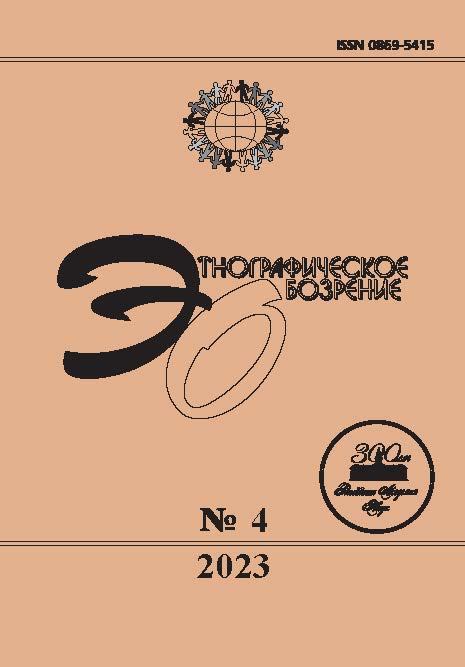Return of the stolen god: the sora cult of Mattar Banom (an ethnolinguistic analysis)
- Autores: Renkovskaya E.A1
-
Afiliações:
- Institute of Linguistics, Russian Academy of Sciences
- Edição: Nº 4 (2023)
- Páginas: 23-40
- Seção: Articles
- URL: https://cijournal.ru/0869-5415/article/view/672216
- DOI: https://doi.org/10.31857/S0869541523040024
- EDN: https://elibrary.ru/HIWAVI
- ID: 672216
Citar
Texto integral
Resumo
The article describes the religion of Mattar Banom, the cult of the autochthonous script of the Sora language, created in the 1930s in the state of Odisha, India, at the same time as script itself. The newly invented script (Sorang-Sompeng) is considered to be the incarnation of the god Jagannath who, according to Hindu beliefs, was originally the god of the Savara tribe (supposed ancestors of the Sora) but then was taken away from them by the Oriya Brahmins. Each character of the script is dedicated to a certain deity of the traditional Sora pantheon. The article deals with the social prerequisites, conditions and goals of creating the cult, as well as the history of its development. I attempt to examine and reconstruct cult modification strategies through the ethnolinguistic analysis of the inscription on the iconographic image of the god-alphabet, religious texts, and cult terminologies. I argue that the cult was originally based on the tantric ideas common in Odisha, while the ideas of Jagannath and letters associated with deities appeared later in the course of the cult's development.
Palavras-chave
Sobre autores
E. Renkovskaya
Institute of Linguistics, Russian Academy of Sciences
Email: jennyrenk@gmail.com
Moscow, Russia
Bibliografia
- Крылова А.С. История, структура и происхождение автохтонных письменностей языков мунда // Восток. Афро-азиатские общества: история и современность. 2018. № 3. C. 119-132.
- Elwin V. The Religion of an Indian Tribe. Oxford: Oxford University Press, 1955.
- Guillaume-Pey C. A Script "Good to Drink": Invention of Graphic Systems among the Sora and Other Tribes of India // The Social and Cultural Contexts of Historic Writing Practices / Eds. P. Steele, P. Boyes, N.E. Astoreca. Oxford: Oxbow Books, 2021. P. 159-184.
- Krylova A. History, Structure, and Origins of the Autochthonous Scripts for Munda Languages // Anthropos. 2021. No. 116. P. 331-343. https://doi.org/10.5771/0257-9774-2021-2-331
- Nayak A. A Morpho-Syntactic Study of the Saora Language Spoken in the Koraput District of Orissa. PhD diss. abstract. Sambalpur University, Burla, 1995.
- Vitebsky P. Dialogues with the Dead: The Discussion of Mortality among the Sora of Eastern India. Cambridge: Cambridge University Press; Delhi: Foundation Books, 1993.
- Vitebsky P. Living without the Dead: Loss and Redemption in a Jungle Cosmos. Chicago: University of Chicago Press, 2017.
- Zide N.H. Three Munda Scripts // Linguistics of Tibeto-Burman Area. 1999. Vol. 22. No. 2. P. 199-232.
Arquivos suplementares










